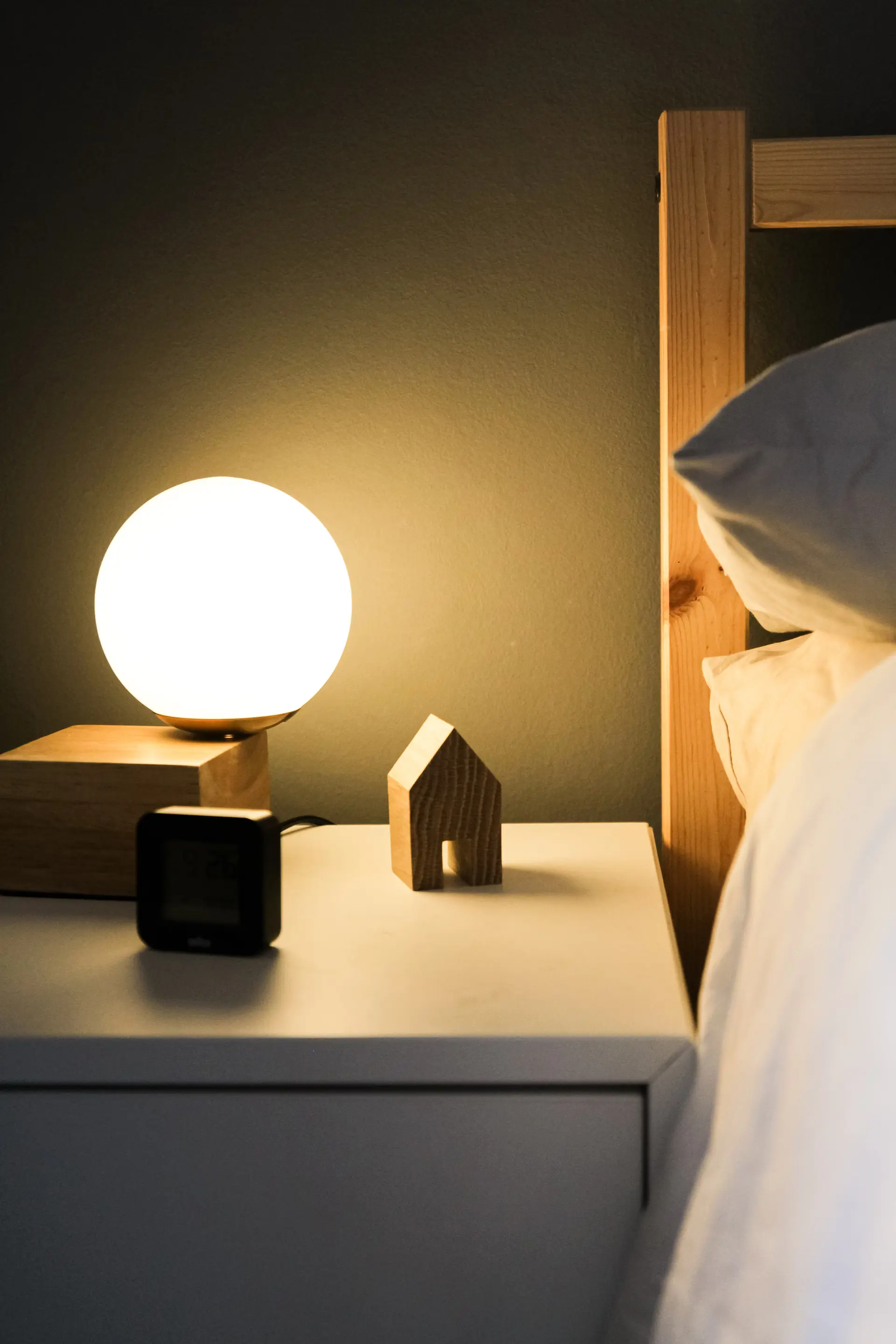Supplements for improving sleep
Sleep is a fundamental part of human health, greatly influencing our productivity, focus, and overall well-being. Inadequate sleep can have a significantly negative impact on human functioning by decreasing productivity, impairing both short-term and long-term memory, and even negatively affecting mood.[1]
In this article, we delve into a selection of natural supplements that have demonstrated reliability in enhancing sleep quality. Our focus is on substances with minimal to no adverse side-effects, which can be consumed safely on a regular basis. While other substances like alcohol may aid in inducing sleep, they often deteriorate the overall sleep quality and can pose potential health risks, so they won't be included in this discussion.
L-theanine
L-theanine is a renowned substance, widely acknowledged for its anxiety-reducing and calming properties. This organic compound is primarily found in plant and fungal species and shares a similar structure with the amino acids glutamate and glutamine. Its chemical name is L-γ-glutamylethylamide, with the 'L' representing the specific orientation of the molecule. Generally, theanine refers to L-theanine, the form in which it is naturally most found.
Aside from its calming properties, L-theanine has a unique interaction with caffeine, potentially mitigating the wakefulness induced by the latter.
A dosage of 200-400mg of L-theanine taken approximately 45 minutes before bedtime can help enhance sleep onset.
Magnesium
Studies have indicated that magnesium can facilitate faster sleep onset and promote longer sleep durations[6]. However, supplementation with magnesium is only beneficial if you're deficient in this mineral, which may not be the case if you maintain a balanced diet. If you suspect that your diet may not provide adequate magnesium, we recommend supplementing with at least 200mg of magnesium bisglycinate before bedtime to augment your sleep quality.
Apigenin
Apigenin is a naturally occurring compound found in many plants, such as; celery, celeriac, chamomile and parsley.[10] Apigenin has been shown to have a muscle-relaxing and sedative effect.[4, 5] This substance is often consumed through chamomile tea, but can also be purchased in capsules. A good dosage for apigenin is 50mg before bedtime.
Ashwagandha
Ashwagandha, scientifically referred to as Withania somnifera, is a plant in the nightshade family that is found in various parts of the world.[8] It has a rich history of use in traditional Indian medicine. The term somnifera translates to "sleep-inducing" in Latin, while the name 'ashwagandha' is derived from the Sanskrit words 'ashva' (meaning horse) and 'gandha' (meaning smell), which reflect the herb's reputed calming properties and unique aroma.[9]
Ashwagandha has been shown to reduce cortisol levels, thus mitigating stress[2, 3], which is a common factor that inhibits sleep. If you experience elevated stress levels at night, ashwagandha supplementation may help in soothing your nerves and facilitating quicker sleep onset.
Melatonin
Melatonin is a hormone that your body naturally produces in response to the circadian rhythm. It can be supplemented to rectify irregular sleep schedules caused by factors such as night shifts or jet lag. However, if you have a consistent sleep schedule, supplementing with melatonin may not provide additional benefits, and its usage in such circumstances is not generally recommended.
Glycine
Glycine is another supplement that has demonstrated promising results in enhancing sleep quality and reducing fatigue when taken before bedtime.[7] This amino acid contributes to sleep enhancement by lowering the core body temperature, a vital factor in sleep regulation. Additionally, glycine boosts serotonin levels, a neurotransmitter that plays a crucial role in sleep regulation.
A dosage of 2-3g of glycine before bedtime is recommended to optimize sleep quality.
In conclusion, while these supplements can significantly enhance sleep quality, it's important to remember that they should be used as part of a holistic approach to improving sleep, which includes maintaining a consistent sleep schedule, optimizing your sleep environment, and adopting healthy lifestyle habits. Always consult with a healthcare professional before starting any new supplementation regimen.
Related articles
References
- [1] Pilcher, J. J., & Huffcutt, A. I. (1996). Effects of sleep deprivation on performance: a meta-analysis. Sleep, 19(4), 318-326.
- [2] Pratte, M. A., Nanavati, K. B., Young, V., & Morley, C. P. (2014). An alternative treatment for anxiety: a systematic review of human trial results reported for the Ayurvedic herb ashwagandha (Withania somnifera). Journal of alternative and complementary medicine (New York, N.Y.), 20(12), 901–908. https://doi.org/10.1089/acm.2014.0177
- [3] Chandrasekhar, K., Kapoor, J., & Anishetty, S. (2012). A prospective, randomized double-blind, placebo-controlled study of safety and efficacy of a high-concentration full-spectrum extract of ashwagandha root in reducing stress and anxiety in adults. Indian journal of psychological medicine, 34(3), 255–262. https://doi.org/10.4103/0253-7176.106022
- [4] Salehi, B., Venditti, A., Sharifi-Rad, M., Kręgiel, D., Sharifi-Rad, J., Durazzo, A., Lucarini, M., Santini, A., Souto, E. B., Novellino, E., Antolak, H., Azzini, E., Setzer, W. N., & Martins, N. (2019). The Therapeutic Potential of Apigenin. International journal of molecular sciences, 20(6), 1305. https://doi.org/10.3390/ijms20061305
- [5] Shakeri, F., & Boskabady, M. H. (2015). A review of the relaxant effect of various medicinal plants on tracheal smooth muscle, their possible mechanism(s) and potency. Journal of ethnopharmacology, 175, 528–548. https://doi.org/10.1016/j.jep.2015.10.017
- [6] Forrest H. Nielsen, F. H. Nielsen, Luann K. Johnson, L. K. Johnson, & Huawei Zeng, H. Zeng. (0000). Magnesium supplementation improves indicators of low magnesium status and inflammatory stress in adults older than 51 years with poor quality sleep. Magnesium Research, 23, 158-168. doi: 10.1684/mrh.2010.0220
- [7] Bannai, M., & Kawai, N. (2012). New therapeutic strategy for amino acid medicine: glycine improves the quality of sleep. Journal of pharmacological sciences, 118(2), 145-148.
- [8] Withania somnifera (L.) Dunal GRIN-Global. (1985, July 11). United States Department of Agriculture. Retrieved December 30, 2021
- [9] Ganzera, M., Choudhary, M., & Khan, I. (2003). Quantitative HPLC analysis of withanolides in Withania somnifera. Fitoterapia, 74(1–2), 68–76.
- [10] Shankar, E., Goel, A., Gupta, K., & Gupta, S. (2017). Plant Flavone Apigenin: an Emerging Anticancer Agent. Current Pharmacology Reports, 3(6), 423–446. https://doi.org/10.1007/s40495-017-0113-2
